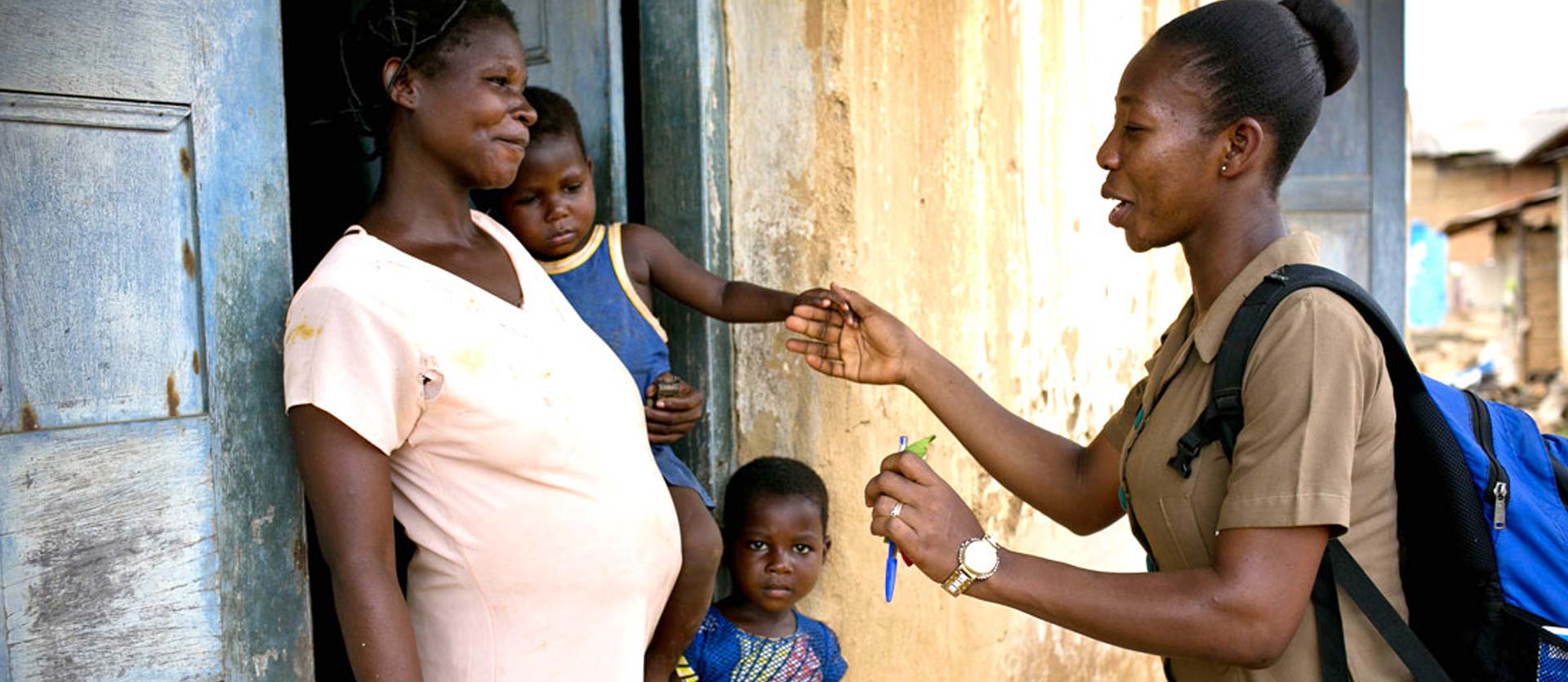![]()
Social and Behavior Change Communication
Beyond simply delivering a message, Social and Behavior Change Communication (SBCC) is the systematic application of theory-based, research-driven communication strategies to address individual level change and change within broader environmental and structural levels. As USAID’s flagship global program in maternal, newborn and child health, MCSP had the opportunity to reach women and their families throughout Asia and Africa with contextualized SBCC approaches at both facility and community levels.
Across our priority countries, our SBCC work focuseds on three major objectives:
1. Implement strategic, evidence-based SBCC activities at the country level
We strengthened national community health worker systems and mobilizing communities to address structural and cultural barriers. MCSP efforts also addressed provider behavior and improved the quality of client-health provider interactions, while bolstering linkages between communities and health facilities. Through use of the community action cycle, group-based dialogue and learning approaches, information and communication technologies, quality improvement approaches, and engagement of community champions, we improved quality of care and cultivated an enabling environment for optimal practices and use of reproductive, maternal, newborn and child health (RMNCH) services and gender equity initiatives.
2. Contribute to the evidence base at country and global levels
MCSP worked to advance global learning on evidence-based approaches for promoting RMNCH SBCC. For example, a study in Tanzania explored sociocultural and environmental cues to birth spacing and optimal nutritional behaviors. The study tested the use of innovative communication approaches for influencing nutrition and family planning perceptions and practices among women, their family members, village leaders, and health providers.
3. Collaborate and coordinate with SBCC partners globally and at the partner level
Finally, MCSP worked closely with SBCC partners and leverages the expertise of bilateral and global awards focused on SBCC.

